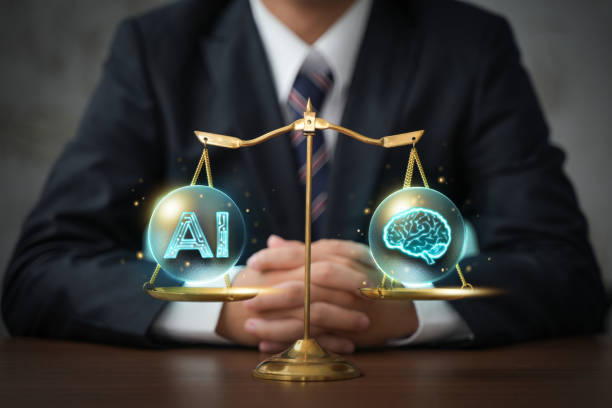I got a message from a friend the other day. “Looks like AI is headed for your job. Chat GPT passed the bar by 90%.” My immediate response was, “Of course it did! It is a computer program that has the entire internet at its disposal, and likely was programed with every passable answer to every multiple-choice question and every acceptable passing essay to the written portion.  I too was given access to all of that information, but I am human and could only retain so much and I passed the bar in both FL and CA. However, the computer program does not know why it selected the correct answers or why an essay written a certain way passes the exam. I do. A computer program may be able to find a form contract, but it does not know why that form needs to be tailored to every client, nor does it know and understand human nature. A computer program does not understand that one word difference in a contract can change the meaning of that entire section of that contract. A computer program does not understand the breadth of gray area in every case and in every contract nor can that be taught to a computer. A computer program is only as good as the coding it receives.”Â
I have said for years, the LSAT (the exam to get into law school) does not prepare you for law school, law school does not prepare you to take the Bar Exam, The Bar Exam does not prepare you to practice law. You might ask, they why go to law school? Because law school teaches you how to analyze between the lines of black and white legal case law and statutes, it teaches you how to THINK. Lawyers further humanize the legal process by using their hearts, minds and feelings to empathize with a client. A computer can be taught to retrieve information, process that information in accordance with pre-programed cues, but it is not sentient, so it cannot think for itself, nor can it help a client weed their way through the emotional turmoil of a dispute because a computer cannot empathize with the client.
The public has had access to a plethora of “form agreements” whether through using the law library or the internet for decades now. Yet attorneys still have a job. Why? Because the general public still does not know how interpret legal clauses, and they do not know how to amend those form agreements to fit their needs without causing massive ambiguity. It takes years of education, training and internships to learn that skill. I have been in practice for over a decade now, and I can say without hesitation that despite having hundreds of business and entertainment clients, I have never written the same contract twice because it would not fit the specific needs of my client and they would not be protected if I gave them a form contract every time. I have mediated hundreds of cases where two parties with the best intent sat down, grabbed 5 contracts that they believed applied, and tossed in clauses they thought worked for their situation only to find that neither truly understood the actual language they placed in the contract. Now they are fighting over the clause that would apply to the situation, but because of the ambiguous language neither interpretation applies.
Contracts are legal documents with legal and ethical implications for the parties involved. AI does not understand ethics, gray area between each line of written text, or the human impact of the words it has written. It can write an essay on the content provided by other humans, but it cannot analyze and interpret the ethical considerations and implications of any legal document. Ethical considerations go way beyond compliance with laws and regulations. Because AI relies on the data and information provided to it, it often supplies bias results that may favor one party inadvertently and without the parties understanding the true implications of this bias.
A few weeks ago, I had a client facing issues with a non-competition agreement. After hiring me, he took it upon himself to ask ChatGPT to write a letter using all of the specifics he provided to me, and provided me the letter. Within seconds I knew that the letter was about as worthy as providing toilet paper to the opposing party. Why? It provided supporting law and arguments that did not exist in Florida, or any other state for that matter. Can you guess why this law that ChatGPT provided was fictitious? If you guessed that it is because ChatGPT searched the entire internet and supplied fictitious case law that was available from mock trials to law students learning how to process case information on a small scale, hypothetical cases that had been supplied as hypothetical examples to the general public, and fake laws that internet trolls use to drum up scare tactics, then you guessed correctly! Oh, and these are the same resources AI is using to draft those contracts that are now being mediated by me because of all the deficiencies present in do-it-yourself contracts.
If you don’t believe me, check out the recent news regarding the attorney that used AI to draft his brief and motions using the fictitious law provided by AI. He is currently being sanctioned. https://www.nytimes.com/2023/06/08/nyregion/lawyer-chatgpt-sanctions.html
Do yourself, your business and your business associates a favor and listen to your friendly neighborhood attorney. Hire a qualified attorney to help you navigate the intricacies of the process of drafting and negotiating any legal document. Don’t risk the stress, hours and cost of a prolonged legal battle, negative publicity, damage to your/your businesses reputation, ethical considerations, embarrassment and financial losses associated with DYI contracts and false legal AI content.
